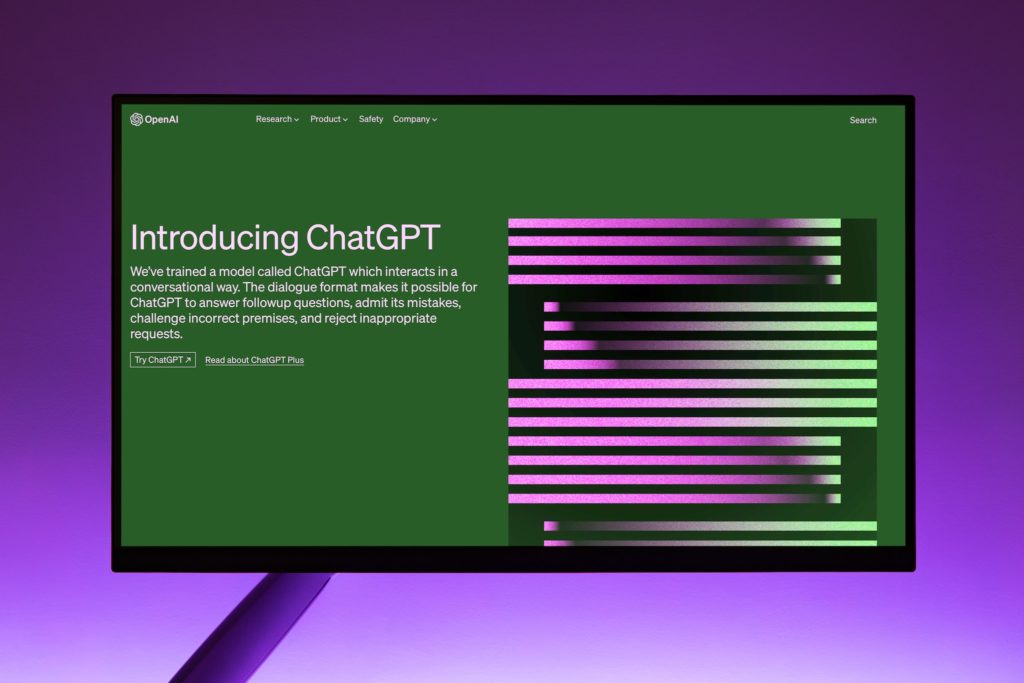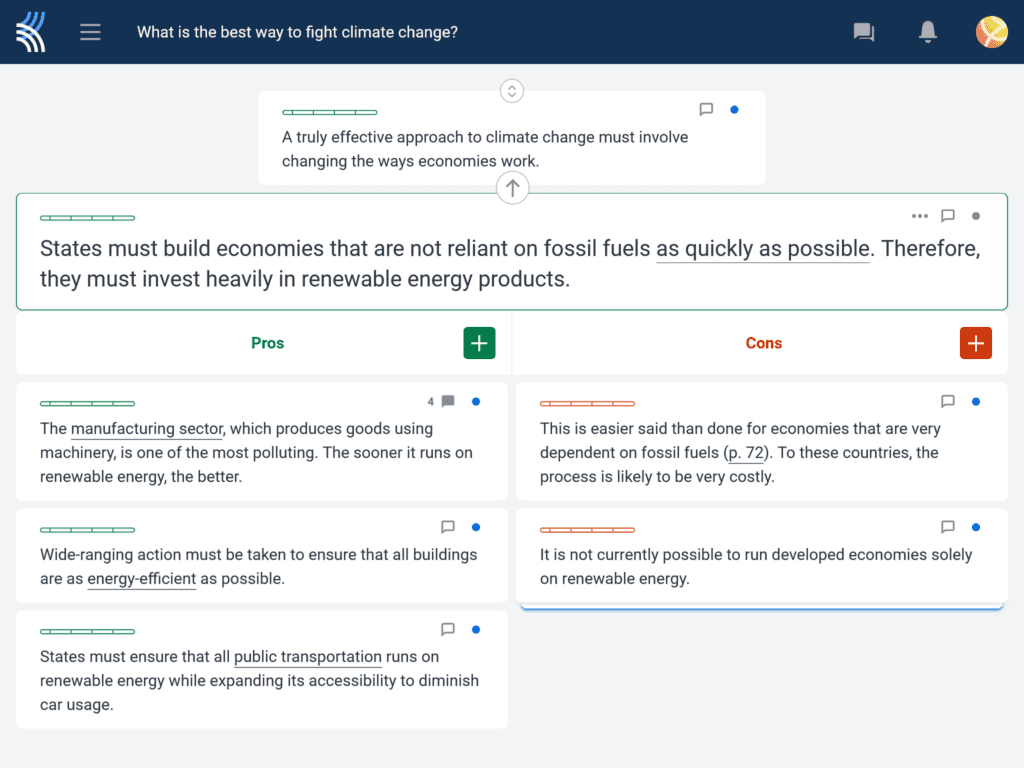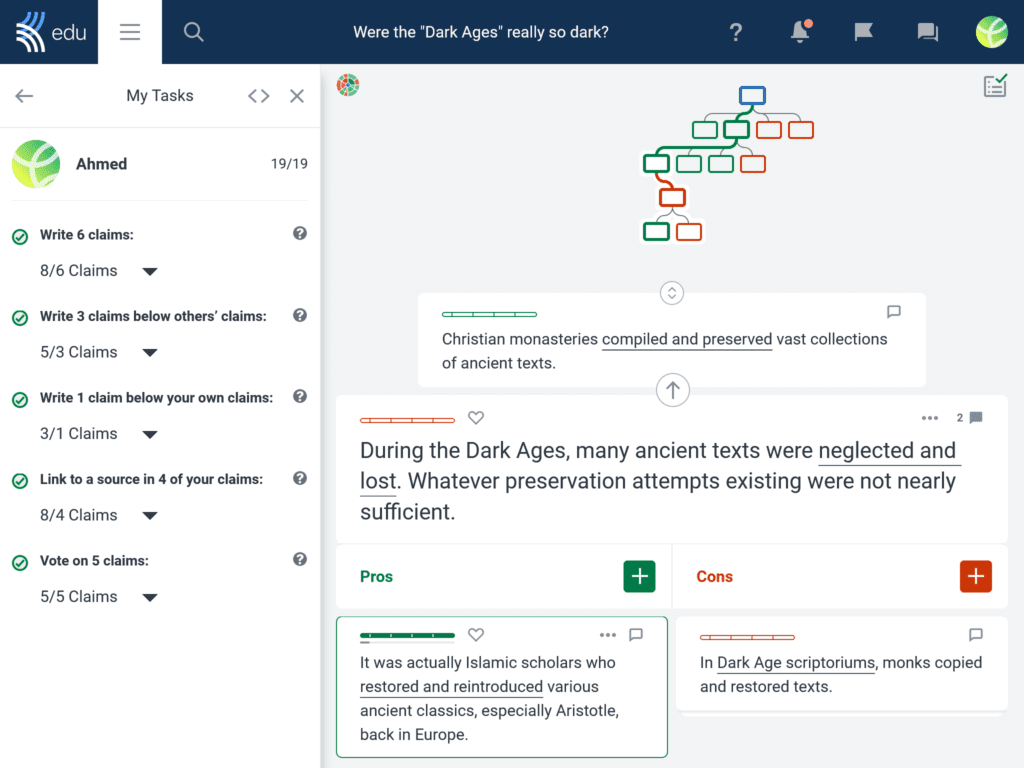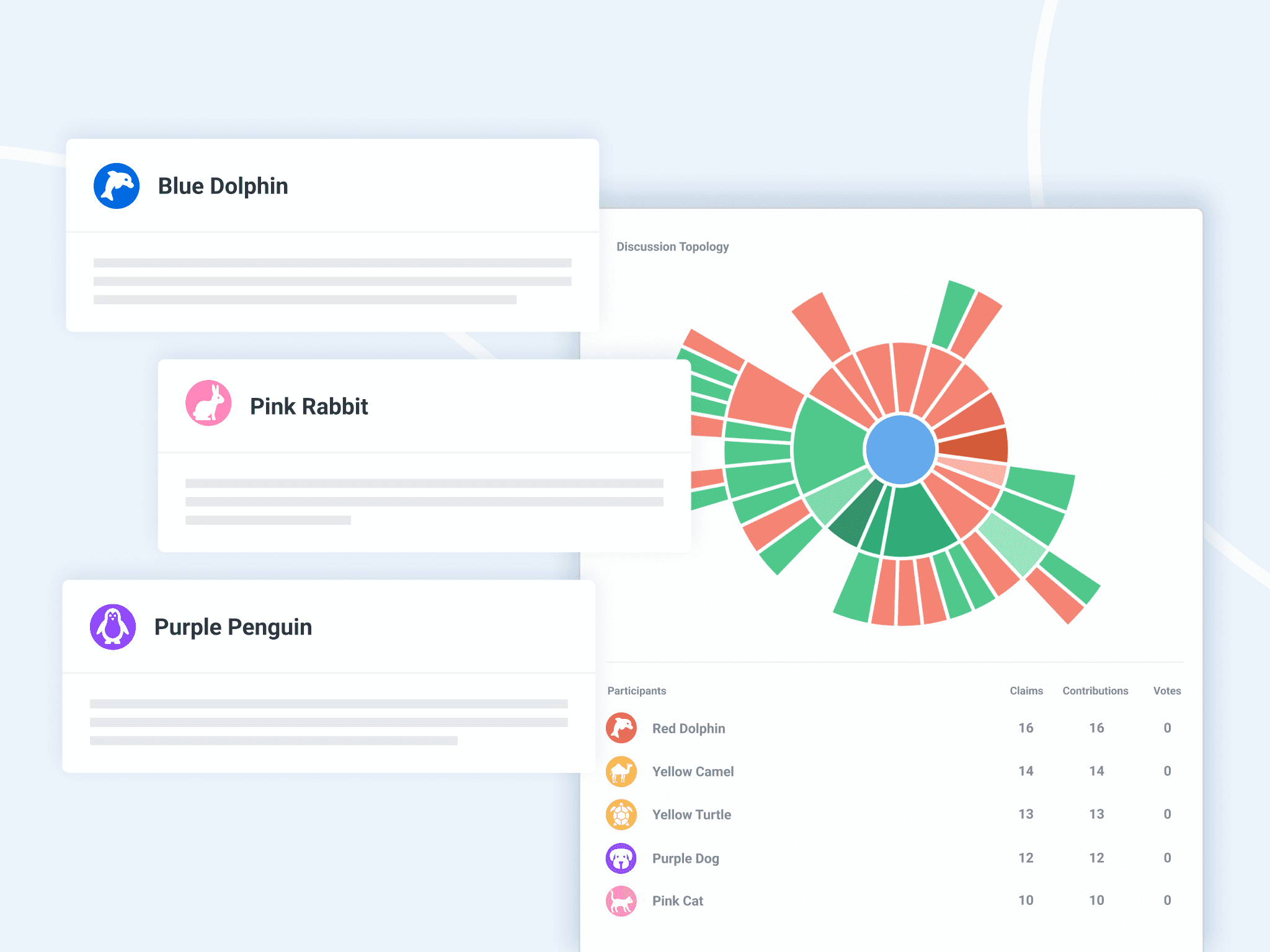With the rise of advanced AI chatbots such as ChatGPT, we’re staring a paradigm shift in the face. Whether we’re about to live the plot of a sci-fi thriller or usher in a new technological utopia remains to be seen, but we already know one thing about our new AI-enhanced reality: It has opened up the door to cheating like never before.
With the rising potential of students to use AI chatbots like ChatGPT to write their assignments for them — often not at all badly — some techno-soothsayers have foretold the death of the essay. Indeed, many venerable assessment formats now seem irrevocably compromised.
But what could possibly replace them? Right now, many of the most brilliant minds in education are scrambling to answer that very question. To the flurry of ideas, we’d like to submit one more: discussions on Kialo Edu, which are uniquely suited to assessing original ideas.
How the classroom has been disrupted with AI chatbots like ChatGPT

Have you tried out ChatGPT yet? Unless you’re made of much sterner stuff than the rest of us, odds are some breath left your body when you saw what it could do. As AI chatbots reach their technological maturity, they are thoroughly capable of answering natural-sounding questions or prompts, so that anyone can use them to gain answers or ideas on a wide variety of topics.
Of course, this includes virtually any curricular topic. Simple informational or even analytical questions are often a breeze for the latest AI chatbots, occasional errors notwithstanding.
What’s more, only three-and-a-half months passed between the release of ChatGPT 3.5 (the current free version) and the latest, premium ChatGPT 4. According to ChatGPT developers, the newest model boasts significant advances in creativity and the ability to process long inputs. All indications point to AI chatbots hitting a staggering rate of growth, which may be the only part of this article that’s not sure to become outdated!
Given this reality, there is massive and ever-growing potential for students to cheat with AI chatbots. With the right prompt, students can answer questions without reading the text, elicit hypothetical responses to a problem, or even generate “creative” writing. Needless to say, this has some deeply troubling implications for most varieties of take-home assessments, as students can rely on AI over their own “I” to complete their work.
As a result, there is a new technological arms race between AI chatbots’ generative sophistication and tools to detect AI-generated text. As is often the case in modern warfare, the defense is currently lagging. While some tools have proven a certain degree of effectiveness, it doesn’t even take a particularly clever student to make a few text edits that throw these new “AI plagiarism detectors” off the digital scent.
All in all, what this means is that educators will need to radically rethink many traditional assessment practices. Short-answer questions, at-home essays, and even journals are vulnerable to AI-based cheating. Some suggest putting a personal or creative spin on these types of assessments, while others advocate for a shift to other methodologies. Oral exams, in-class essays, and group discussions are all on the list of potential replacements, but these come with their own issues and shortcomings. Enter Kialo Edu.
How can Kialo Edu act as a cheating-resistant assessment format against ChatGPT?

When students build a discussion on Kialo Edu alone or with peers, they can break down complex ideas into clear, digestible units and structure them into logical, visually intuitive lines of reasoning.

Aside from working with content knowledge, Kialo Edu also helps students build the higher-order skills of logical reasoning and critical thinking. Crucially, the structure of the platform itself makes it harder for students to outright cheat using AI chatbots like ChatGPT. They’ll at least have to put in some effort, which — as much as they may try to avoid it — is likely to teach them something.
So, next time you’re worried about assigning an assessment that can be easily plagiarized from AI chatbots, consider assigning a Kialo Edu discussion instead. Here’s how:
Students can ask an AI chatbot for a list of reasons for or against a given proposition, which might seem useful for a discussion on Kialo Edu. AI chatbots excel at straightforward answers, and they are increasingly good at offering support for those answers, too. But unfortunately for any would-be cheaters, it’s not so simple as plugging these outputs into a Kialo Edu discussion.
Converting an AI’s output into Kialo’s discussion format takes independent reasoning skills that, at least for now, students must exercise themselves. This is because Kialo Edu discussions are as much about the depth and connective structure of arguments as their constituent ideas. By setting tasks, you can oblige students to back up or refute arguments within a logical hierarchy of claims. AI chatbots can’t do that (yet)!

So even if a wily student uses an AI chatbot to generate every idea in a Kialo Edu discussion, they’re still obliged to do some independent thinking as they logically reckon with those ideas to form a structured, well-supported line of argumentation.
And in no circumstances can a student simply copy and paste an AI chatbot’s output without understanding the content and its logical relations. This is what we mean by “cheating-resistant.”
What are the advantages for giving assessments on Kialo Edu?

Kialo Edu has some distinct advantages over many traditional assessment formats, which you may be looking to replace.
The most obvious casualty of AI-based cheating is the traditional essay, but don’t shed any tears just yet! By using Kialo Edu in place of an essay, you don’t lose much in terms of developing students’ content knowledge and logical reasoning skills.
If anything, students may place more focus on these learning outcomes since they don’t need to worry about the essay-specific considerations of writing style, rhetorical flair, or fitting ideas into a restrictively linear structure. You and your students may find that Kialo Edu is a thoroughly suitable, if not somewhat preferable, replacement for an essay.
With AI chatbots like ChatGPT taking writing assignments off the table, you may be considering more oral exams or group discussions as an assessment alternative. Hey, good thinking! But before you sit down students for live discussions, consider that these formats have their own shortcomings, especially in terms of equity.
In live discussions, students with speech-related disabilities, anxiety around public speaking, or less charisma than their peers can all be distinctly disadvantaged. Meanwhile, in a discussion on Kialo Edu, everyone can participate independently, simultaneously, and at their own pace.
Especially in Anonymous Discussions, this means no one gets their anxiety triggered, and shy students don’t inevitably lose the floor-holding competition. Moreover, students with charisma and those without are put on a more level playing field, where the content of their ideas matters much more than the delivery.

No one quite knows how our new, AI-enhanced reality will change the world, but won’t it be interesting to find out? As an organization that straddles tech and education, we’re here to support you in these interesting times. And rest assured, Kialo Edu won’t be gaining sentience anytime soon. With all the potential of Kialo Edu, let us know how you’ve use Kialo discussions in place of an assessment at feedback@kialo-edu.com, or on social media!

